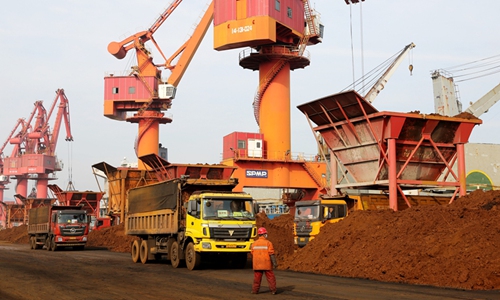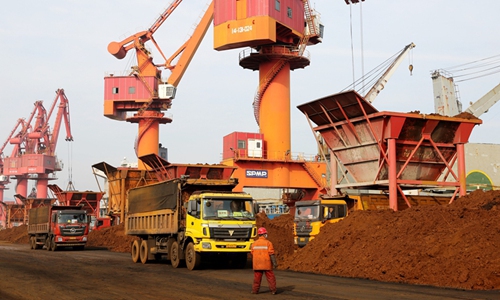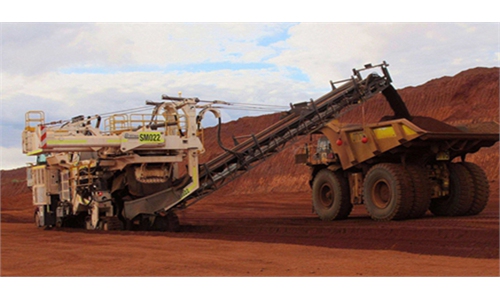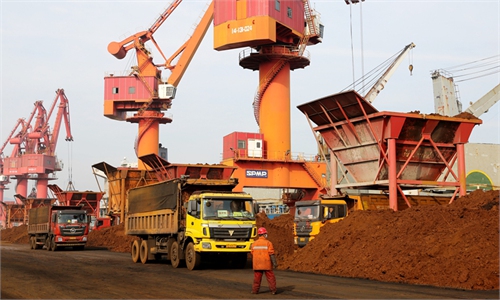
Iron ore Photo:VCG
Australian exports to China may face a heavy blow in the rest of the year, as prices of iron ore, one of Australia's biggest exports to China, have experienced record and consistent drops since late June, Chinese industry insiders said on Wednesday.
Australian iron ore is a major component of trade with China, and falling demand and prices may impact total bilateral trade, experts said.
As of Tuesday, the Platts iron ore price index was $94 per ton, down 59.7 percent from a high of $233.1 on May 12, according to data from the Lange Steel Cloud Business Platform.
While Singapore iron ore futures prices rose 10 percent on Wednesday, the sector's overall weakness won't change amid weak demand, especially for iron ore from Australia, experts said.
As the largest steel producer and exporter, China's demand for iron ore has been strong, but it depends heavily on imports. About 80 percent of iron ore resources come from abroad, and 60 percent of China's iron ore resources come from Australia.
This heavy reliance on Australia has put the supply chain at risk, prompting efforts to reduce reliance on imports. This situation is now expected to come to an end.
"Taking into consideration multiple factors such as production limits during the heating season, which covers autumn and winter, and air quality assurance for the Winter Olympics, China's average daily production of crude steel would be reduced to about 2.6 million tons," Wang Guoqing, research director at the Beijing Lange Steel Information Research Center, told the Global Times on Wednesday.
Based on this estimate, total iron ore imports for the year may fall 8 percent to 1.06 million tons, the expert said.
The heavy dependence is being reduced, thanks to China's efforts to close down some domestic factories for carbon reduction purposes and expand the sources of supply, as well as seeking alternative resources.
What is happening in the iron ore industry is part of China's broader industrial adjustment to deal with climate change, Chen Hong, director of the Australian Studies Center at East China Normal University in Shanghai, told the Global Times on Wednesday.
The fall in iron ore prices represents a process of rationalization, Chen said, dismissing claims by some Western media outlets about China taking countermeasures against Australia over iron ore imports.
"It is impossible for China to impose sanctions on Australia at the expense of its own industrial development," said Chen.
Despite the price rise on Wednesday, Chen said that it's part of normal market volatility and the overall situation is bearish for Australian iron ore.
In the rest of the year, Australia's iron ore exports to China will fall as demand eases, and this will be reflected in total bilateral trade.



